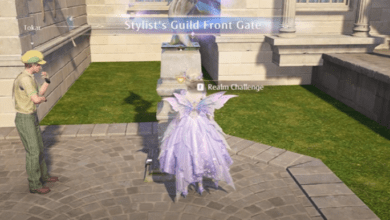Dark Thrillers and Dramas with a Sitcom Twist: Hidden Gems You Must Watch
In recent years, we’ve seen a fascinating blend of genres where traditional sitcom elements meet darker, more sinister narratives. What happens when the perfect, light-hearted world of sitcoms pulls back the curtain to reveal something darker lurking behind the laugh track? If you’re intrigued by shows and movies that combine a vintage TV aesthetic with chilling drama or unsettling undertones, you’re in the right place.

From psychological thrillers to dystopian spectacles, these types of films and TV shows offer a unique viewing experience that often explores the duality of appearances versus reality. Whether it’s the eerie vibes of live studio audiences or the nostalgic appeal of a sitcom gone wrong, here are some incredible options to satisfy your craving for this genre-bending concept.
The Intersection of Sitcoms and Darkness: What Makes This Genre Unique?
Sitcoms, in their classic form, are designed to be light, easy-going, and entertaining. You know the kind familiar settings, laugh tracks, and problems that resolve neatly by the end of the episode. But what happens when that polished surface cracks? This is where darker thrillers and dramas step in. These shows and films mix sitcom elements with disturbing realities, leaving viewers unnerved as the line between comedy and horror blurs.
Think of it as putting on a happy mask, only to reveal something far more complex and sinister underneath.
1. Wandavision: The Ultimate Meta Experience
If we’re talking about combining sitcom themes with a darker undercurrent, it’s hard not to start with Wandavision. This Marvel series took the internet by storm with its unique concept: each episode pays homage to a different era of sitcoms while unravelling an increasingly disturbing mystery.
At first glance, it feels like a typical sitcom set in a charming suburban town, complete with a laugh track and wholesome family dynamics. But as each episode progresses, the picture-perfect reality begins to crumble, revealing deep emotional scars, mind control, and the twisted lengths one will go to avoid grief. It’s both a love letter to classic TV and a psychological thriller that keeps you on edge.
Why it works: The show brilliantly contrasts the bright, comforting nostalgia of old TV sitcoms with the unsettling darkness of Wanda’s real emotional trauma.
2. Nope: A Chilling Take on Spectacle and Sitcoms
Jordan Peele’s Nope doesn’t necessarily focus on sitcoms, but it does touch on the concept of live television and the way it’s far from glamorous. One of the most unnerving moments of the film is a flashback to a sitcom episode gone horribly wrong, where a chimpanzee attacks the cast live on set. This horrifying scene underscores the contrast between the bubbly, carefree sitcom vibe and the sheer terror lurking behind the curtain.
Why it works: Peele’s exploration of spectacle in media, combined with the shock of a seemingly innocent sitcom set turning into a bloodbath, taps into our fears of the unexpected and the grotesque hiding in plain sight.
3. Kevin Can F Himself: A Sitcom with a Dark Reality
Kevin Can F** Himself presents a revolutionary twist: part sitcom, part dark drama. The show follows a woman stuck in a stereotypical sitcom marriage think Everybody Loves Raymond where her husband is the goofy, loveable goof who can do no wrong. But as soon as the spotlight shifts away from him, the show transitions into a gritty, dark reality, where the main character contemplates her way out of this oppressive life.
The seamless shift from brightly-lit sitcom to the darker side of her reality makes for a uniquely compelling experience. It challenges the perfect illusion that sitcoms often present and allows viewers to see the deeper, more disturbing truth behind her seemingly perfect life.
Why it works: It’s a clever commentary on how women are portrayed in sitcoms and shines a light on the toxic relationships that often go unnoticed in light-hearted entertainment.
4. Pleasantville: The Perfect Town with a Dark Secret
In Pleasantville, two modern-day teenagers are sucked into a 1950s-style sitcom. Everything is perfect, black-and-white, and idyllic until it isn’t. As they introduce modern ideas to this overly simplistic world, cracks begin to appear in the town’s perfect facade. The film explores themes of conformity, freedom, and the consequences of living in a carefully controlled reality.
Why it works: The juxtaposition of the overly cheerful, monochromatic world with the messy, complex reality we all live in makes for a fascinating and thought-provoking watch.
5. The Truman Show: The Ultimate Spectacle of a Life on TV
If you’ve ever felt like someone was watching your every move, then The Truman Show will strike a chord with you. This film is the ultimate exploration of the spectacle of live TV, where the protagonist, Truman, is unknowingly living in a 24/7 sitcom broadcast to the world. As he begins to realize that his life isn’t what it seems, the film delves into themes of control, freedom, and the ethics of entertainment.
Why it works: The genius of The Truman Show lies in its ability to make you question reality. Are we all, in some ways, living in our own constructed sitcoms, putting on performances for the world around us?
6. Don’t Worry Darling: Picture-Perfect Lives With a Dark Twist
Don’t Worry Darling combines the aesthetic of a 1950s sitcom with a creepy, dystopian undercurrent. On the surface, everything in this picture-perfect town is pristine and orderly, but beneath that, there’s a growing sense of dread as the main character realizes that something is terribly wrong. With themes of control, manipulation, and the loss of autonomy, this film keeps viewers on edge as the illusion of perfection unravels.
Why it works: The contrast between the seemingly ideal world and the darker reality underneath makes for a compelling psychological thriller.
7. Unreal: The Dark Side of Reality TV
Unreal takes a look behind the scenes of a reality dating show, exposing the manipulative, often unethical tactics used by producers to create drama. While not a traditional sitcom, it shares the concept of a fabricated world being presented to an audience while a darker reality exists behind the scenes. The show explores the theme of spectacle and the ways in which TV manipulates both its participants and its viewers.
Why it works: By pulling back the curtain on reality TV, Unreal shows us that even the most seemingly harmless entertainment can have a sinister underbelly.
8. The White Bear Episode (Black Mirror): When the Audience Becomes the Villain
In the Black Mirror episode White Bear, we’re introduced to a chilling concept: a woman is forced to relive the same horrifying day over and over while being watched by a silent, dispassionate audience. As the story progresses, it becomes clear that she’s trapped in a twisted form of live entertainment, where her suffering is the spectacle.
Why it works: The episode is a biting critique of our obsession with spectacle and entertainment, as well as the dehumanizing effects of constantly being watched.
9. Late Night With the Devil: A Chilling Broadcast
Though not strictly a sitcom, Late Night With the Devil explores the concept of a vintage live TV show being filmed in front of an audience. What starts as a standard late-night talk show quickly spirals into a disturbing and supernatural nightmare, blending the comfort of familiar TV formats with deeply unsettling twists.
Why it works: The film taps into the idea that even the most harmless-seeming entertainment can quickly turn dark and dangerous when the supernatural is involved.
10. Mr. Robot’s Sitcom Episode: A Dark Satire of Happy Family Shows
In Mr. Robot, there’s an unforgettable episode that takes the form of a classic 90s family sitcom. The bright, cheerful setting is a stark contrast to the show’s usual tone, and as viewers, you can’t help but feel uneasy. This episode uses the sitcom format to explore mental illness, manipulation, and the protagonist’s fractured state of mind, making it one of the most compelling examples of how this genre-blending can work.
Why it works: The familiar sitcom setup makes the eventual dark turn all the more shocking, demonstrating how unsettling it can be to disrupt familiar formats with harsh realities.
Are There More Dark Sitcom-Esque Thrillers Out There?
The unique blend of vintage TV charm and disturbing, dark themes is an emerging trend in both movies and TV. Whether it’s the eerie laughter of a live audience or the too-perfect sets and characters that seem off, this subgenre taps into our collective fascination with the world of television and the sinister potential behind it.
The beauty of these shows and films is in how they make you think twice about the media you consume. They ask you to consider what’s really going on behind the scenes, making you wonder: is the perfection we see on screen hiding something much darker?
So, are you shooting in the dark by seeking out more of these kinds of shows? Not at all. The more you explore, the more you’ll realize that this unique blend of nostalgia and thrill is becoming a genre all its own. With the increasing popularity of meta-narratives, it’s likely we’ll see even more of these hybrid shows in the future. Stay tuned there’s plenty more darkness lurking behind the sitcom facade.





